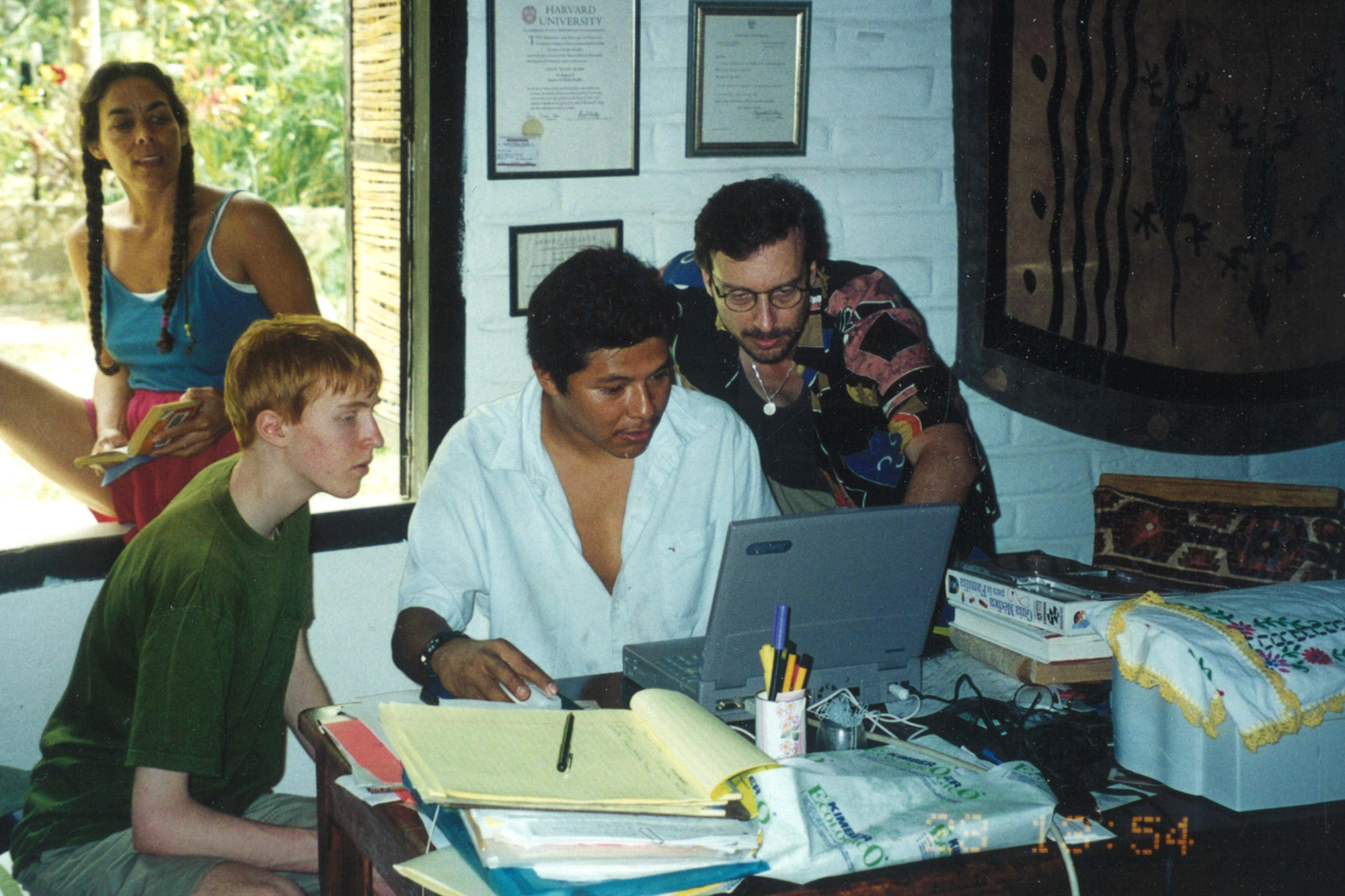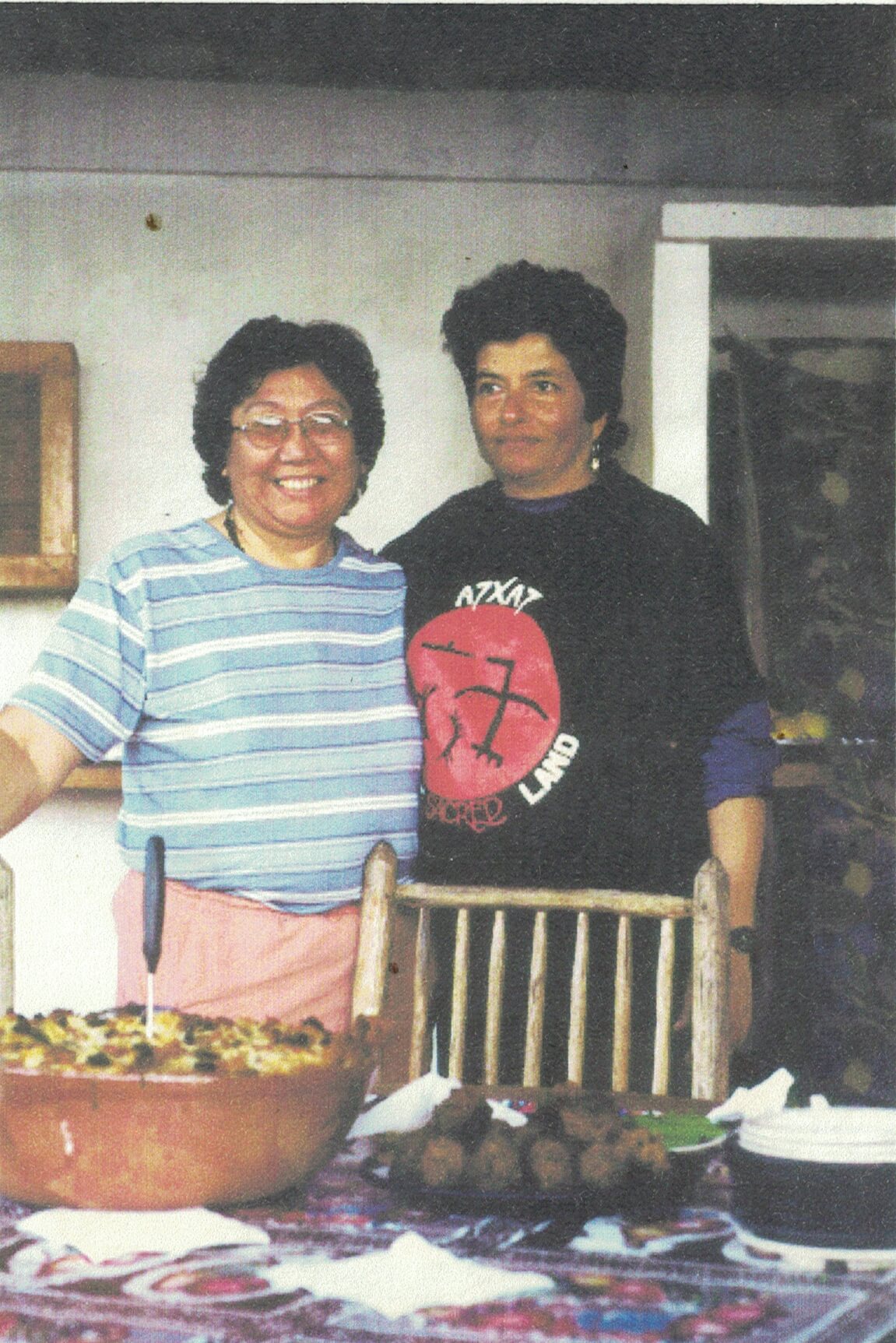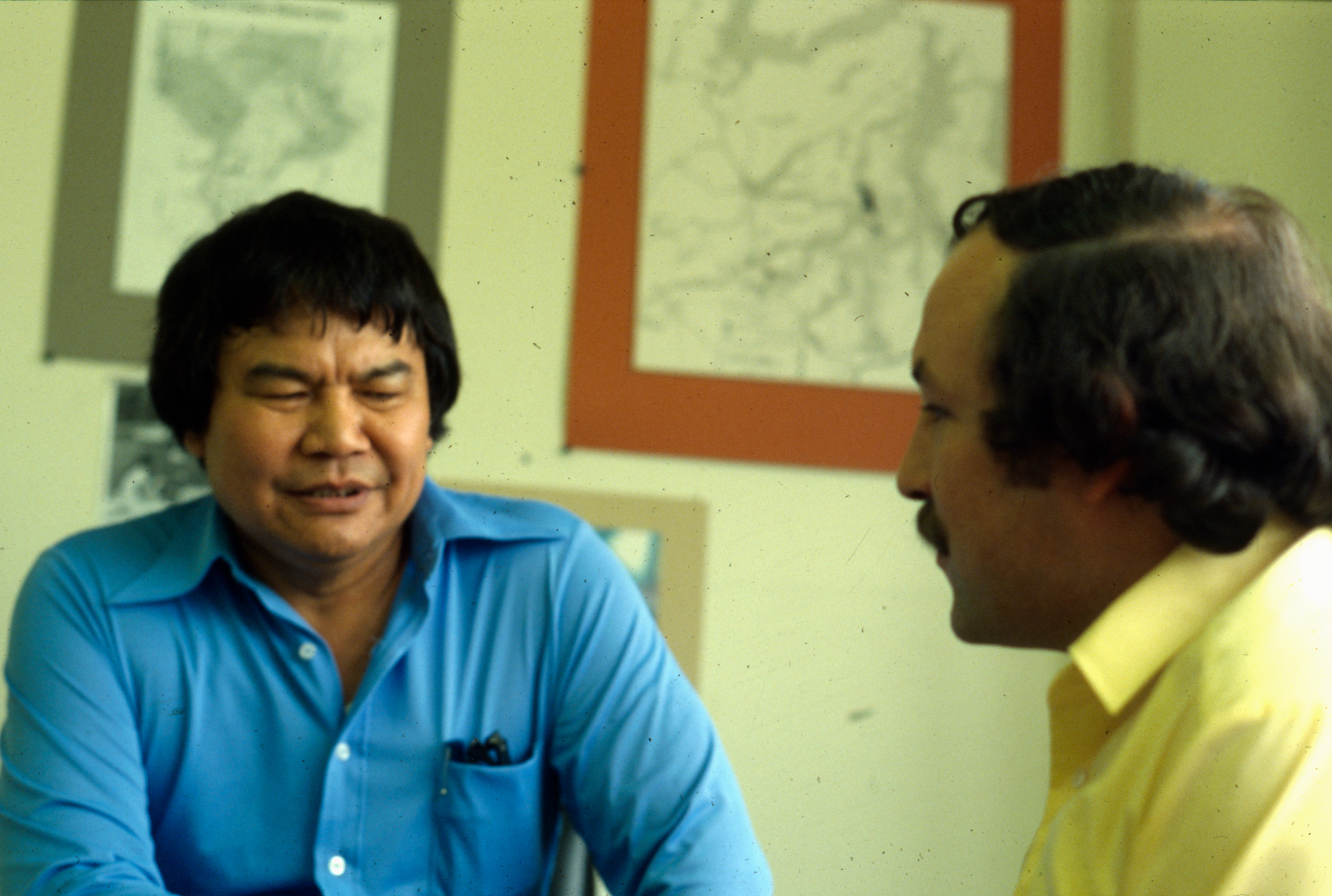

Transforming Access: Leading Digital Innovation to Protect and Amplify 50+ Years of
Indigenous Knowledge on Self-Determination for a Lasting Global Impact
Since 1979, CWIS has received hundreds of thousands of pages of original documents, images, videos, and hand-drawn maps from Indigenous Nations worldwide.
These invaluable records tell the profound story of Indigenous peoples’ fight for self-determination, documenting their political, social, economic, legal, and cultural struggles, alongside their commitment to preserving natural resources and traditional healing practices. These materials offer insights into the resilience, wisdom, and strength of Indigenous communities across generations.
 Conducting the Medicinal Plants, Traditional Medicine Project. Cabo Corrientes, 1999. Photo: CWIS
Conducting the Medicinal Plants, Traditional Medicine Project. Cabo Corrientes, 1999. Photo: CWIS
Many of these irreplaceable resources, however, are at risk of deterioration and require urgent action to ensure their preservation.
By digitizing these documents, images, videos, and maps, CWIS is building a comprehensive, open-access library portal. This effort will create a global platform to honor Indigenous history and knowledge, ensuring that future generations can learn from and celebrate these powerful narratives.
With this initiative, we are preserving the past while creating an enduring digital resource that makes Indigenous voices and legacies accessible to all.
Indigenous Peoples have long fought to protect their cultures, sovereignty, and knowledge. Despite progress through the Indigenous Sovereignty Movement, recent gains are under threat.
New legal challenges and external pressures undermine Indigenous authority and access to cultural heritage. Ancestral lands face destruction from illegal exploitation, land grabs, and environmental damage, compounded by weak legal protections.
This project is essential for preserving cultural knowledge and resources vital to Indigenous communities’ fight for justice. By securing and sharing these resources, we bolster their resilience and support their pursuit of autonomy and rights.

Lucy Covington Colville Tribal Leader. Seventeenth Annual Convention National Congress of American
Indians Cosmopolitan Hotel. Denver, Colorado, 1960.
Russell Jim, Rosalee Tizya, Sherwin Broadhead, and colleagues. University of Washington, Human Rights Conference, 2001. Photo: Amber Cole
Conducting a strategy session in a safe house with MISURASATA. Costa Rica, 1980.
Photo: Bernard Nietschmann
Hazel Wolf speaking. Environmental Meeting at Daybreak Star Indian Cultural Center, 1980.
Photo: CWIS
Child with fish. World Council of Indigenous Peoples Meeting, Greenland, 1980. Photo: CWIS
Protest for Indigenous Rights outside Parliament. Australia, 1981. Photo: CWIS
Miskito fighters. Nicaraguan War, 1983.
Photo: Bernard Nietschmann
Gathering Capomo to eat. Yelapa, Jalisco, 1997. Photo: CWIS
Sopa de Calabaza, Estilo Morelia. 2008.
Photo: Amber Cole
Culture, Foods and Medicines workshop held by Center for Traditional Medicine with Lummi Nation. 2004. Photo: CWIS
Rudolph Ryser Shooting Pathfinder Documentary. 2022. Photo: Alma Mendez
Making Huazontle Rellenos. Jalisco, 2008.
Photo: Amber Cole
Indigenous woman wearing traditional costume. Guatemala, 1957. Photo: Robert Harper
Epazote, (Dysphania ambrosioides). 1997.
Photo: CWIS

Dr. Rudolph Rÿser has dedicated his life to preserving and expanding global access to Indigenous knowledge. As the visionary founder of the Center for World Indigenous Studies (CWIS), he has championed efforts to safeguard and share cultural and academic resources essential to Indigenous sovereignty. Through CWIS, Dr. Rÿser has helped ensure that Indigenous communities maintain control over their history, knowledge, and future.
For nearly 50 years, Dr. Leslie Korn has led the Center for Traditional Medicine, working alongside Indigenous communities to protect and revitalize their healing traditions in the face of challenges from development, tourism, climate change, and nutritional trauma.
Her collaborative research with these communities holds invaluable insights that need to be digitized to remain accessible to Indigenous communities and future generations.
This digitization effort will ensure that this rich body of knowledge continues to support Indigenous resilience, health, and cultural continuity for years to come.
Dixy Lee Ray, then chair of the U.S. Atomic Energy Commission. Also called Dixy Lee Ray-Gun by Indigenous peoples of Washington State. Portland Oregonian, 1977.
Quileute Indian News, 1978.
Map of Miskito, Sumo and Rama conflicts with Sandinista. 1983. Photo: Bernard Nietschmann
Cover of monograph: Rules of War,
by Rudolph Ryser. 1985. CWIS.